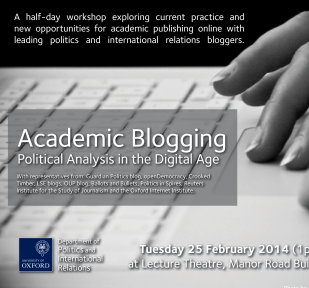
‘Academic Blogging: Political Analysis in the Digital Age’
'Academic Blogging: Political Analysis in the Digital Age'
Play Episode
Pause Episode
Mute/Unmute Episode
Rewind 10 Seconds
1x
Fast Forward 30 seconds
00:00
/
Subscribe
Share
RSS Feed
Share
Link
Embed
Download file | Play in new windowOn Tuesday 25 February, the Department of Politics and International Relations hosted an event on the subject of ‘Academic Blogging: Political Analysis in the Digital Age’. Blogging is becoming an increasingly important aspect of academic life – a way to increase academic output, reach new audiences and foster original debates. This event was an opportunity to learn about the world of academic blogging, understand current trends, and gain insight and advice from the experts.
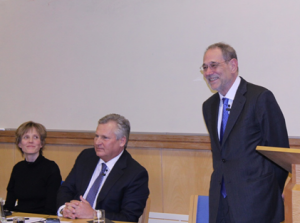
Ukraine and its Place in the World – podcast
Ukraine and its Place in the World - podcast
Play Episode
Pause Episode
Mute/Unmute Episode
Rewind 10 Seconds
1x
Fast Forward 30 seconds
00:00
/
Subscribe
Share
RSS Feed
Share
Link
Embed
Download file | Play in new windowOn 14 March 2014 the Russian and Eurasian Studies Centre at St Antony’s College hosted the 2014 Elliott Lecture: “Ukraine and its Place in the World”. Organised by Dr Paul Chaisty in September of last year, the seminar was intended to explore the implications of the November Vilnius summit and the prospects for the integration of Ukraine into the EU. Given the extraordinary events in the region over the last few months, the focus became Ukrainian territorial integrity. Held on the eve of the referendum in Crimea, the three participants considered the causes of the Ukrainian revolution and the ways in which the outcome of the Crimean referendum is likely to shape regional and international relations over the coming months and years.
Chaired by the Chancellor of the University of Oxford and former European Commissioner Lord Patten, the line-up included two distinguished politicians who have been deeply involved with Ukraine’s integration over many years: former Polish President Aleksander Kwasniewski and former head of NATO, Javier Solana. Dr Gwendolyn Sasse of Nuffield College, Oxford added her expertise on Ukrainian politics, and in particular on the issue of Crimea.
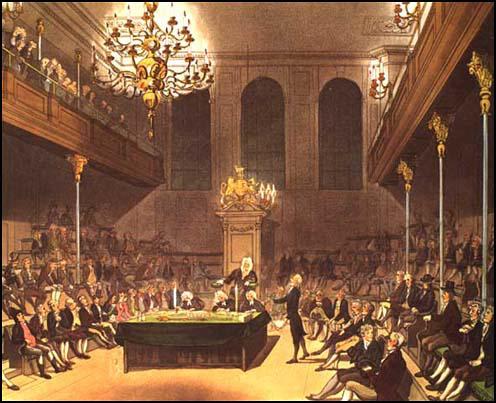
Iain McLean on Constitutionalism, Scottish Secession, and Engagement with Political Theory: Do we need a codified constitution for the (rest of the) United Kingdom?
Iain McLean on Constitutionalism, Scottish Secession, and Engagement with Political Theory: Do we need a codified constitution for the (rest of the) United Kingdom?
Play Episode
Pause Episode
Mute/Unmute Episode
Rewind 10 Seconds
1x
Fast Forward 30 seconds
00:00
/
Subscribe
Share
RSS Feed
Share
Link
Embed
Download file | Play in new windowIn years to come, Saturday 30 November 2013 may be remembered as the last time that a genuinely united Kingdom of Great Britain and Northern Ireland came together to celebrate St Andrew’s Day (Scotland’s official national day). With a referendum on Scottish independence set to take place in Scotland on 18 September 2014, the British state’s survival is far from certain. A majority vote in favour of independence would not result in the immediate break-up of the UK (though the Scottish National Party have recently called for full Scottish separation by March 2016 if independence is endorsed at the ballot box). But even so, it is clear that victory for the independence campaign would leave British national unity – terminally battered and bruised – as little more than a wishful façade. If the Great British edifice crumbles to the ground, what are we to make of the pieces that remain?
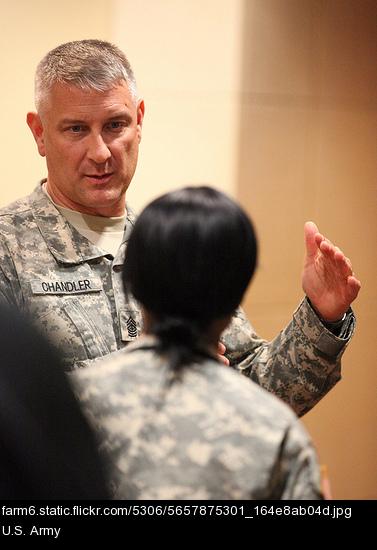
The Responsibility to Protect: the Imperative and the Challenge
The Responsibility to Protect: the Imperative and the Challenge
Play Episode
Pause Episode
Mute/Unmute Episode
Rewind 10 Seconds
1x
Fast Forward 30 seconds
00:00
/
Subscribe
Share
RSS Feed
Share
Link
Embed
Download file | Play in new windowAt the University of Oxford Alumni Weekend, 17 September 2011, Dr Hugo Slim and Professor Jennifer Welsh, from the Oxford Institute for Ethics, Law and Armed Conflict (ELAC), discussed the concept of the ‘Responsibility to Protect’ or R2P in contemporary international relations, and its role in key cases such as Libya and post-election violence in Kenya. Dr Slim discussed the rise of the idea that certain people should be protected in times of war, suggesting that the word ‘civilian’ became a centrepiece of policy during the Bosnian War of the 1990s. He went on to talk about the role and types of ideology that encourage violence against civilians during conflict. Anti-civilian ideology, or the idea that a whole group of …
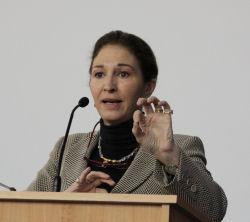
Professor Anne-Marie Slaughter Discusses New Shifts in US Diplomacy
Professor Anne-Marie Slaughter Discusses New Shifts in US Diplomacy
Play Episode
Pause Episode
Mute/Unmute Episode
Rewind 10 Seconds
1x
Fast Forward 30 seconds
00:00
/
Subscribe
Share
RSS Feed
Share
Link
Embed
Download file | Play in new windowOn May 18, 2011 Professor Anne-Marie Slaughter delivered the inaugural Distinguished Fulbright Lecture in Oxford. The topic: The Turn: US Foreign Policy from 2009 to 2011. The key message I took away from the lecture was that during the Obama Presidency, US diplomatic missions have shifted their focus more towards societal actors. The nature of US diplomacy has expanded from acting almost exclusively on a government to government basis, to interacting with societal actors or even acting as a facilitator between societal actors in different countries. This change in diplomacy is part of the emergence of a new paradigm driving the US Foreign Policy post “9/11”. In this paradigm, separation gives way to interconnectedness, conflict to collaboration; and the sole …









